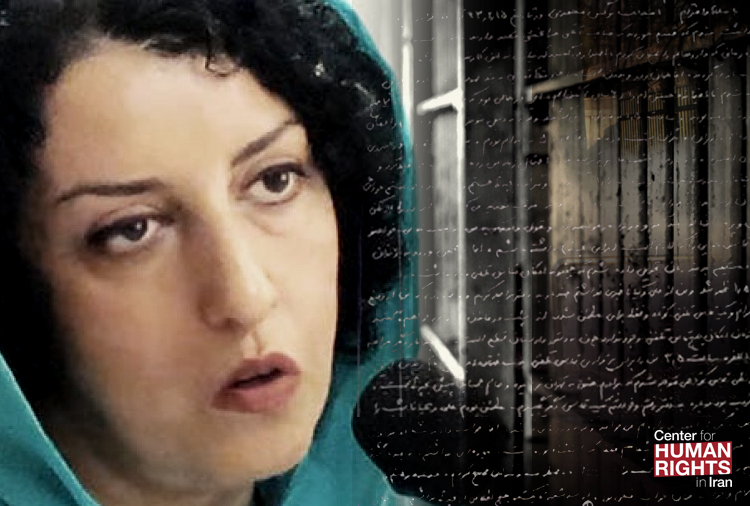“They Know That Moving Her to This Prison Could Kill or Paralyze a Human Rights Activist”

Prisoner of Conscience Violently Transferred to Distant Prison for Demanding Justice for Slain Street Protesters
By transferring prominent human rights activist Narges Mohammadi from Evin Prison in Tehran to the Central Prison in Zanjan, 178 miles west of the capital, Iran’s Intelligence Ministry is deliberately trying to place her in a perilous condition, her husband told the Center for Human Rights (CHRI).
“They beat up Narges and transferred her to the prison in Zanjan without her personal belongings,” said her husband Taghi Rahmani, who lives in France with their two children, in an interview conducted on December 26, 2019.
 “That’s the same prison where she had been held for a period of time and became seriously sick,” he added. “Now the Intelligence Ministry wants to punish her for supposedly protesting [inside Evin Prison]. They know that moving her to this prison is intended to kill or paralyze a human rights activist. They have exiled her on purpose.”
“That’s the same prison where she had been held for a period of time and became seriously sick,” he added. “Now the Intelligence Ministry wants to punish her for supposedly protesting [inside Evin Prison]. They know that moving her to this prison is intended to kill or paralyze a human rights activist. They have exiled her on purpose.”
The recipient of the 2018 Andrei Sakharov Prize from the American Physical Society, Mohammadi has been serving a 16-year sentence since 2015 for engaging in peaceful human rights activism. She will be eligible for release after serving 10 years.
In a letter from the Zanjan prison, Mohammadi said she had been violently tossed into an ambulance by a large group of women and men including Evin Prison Director Gholamreza Ziaei.
“I was surrounded by Ziaei and 20 to 30 men and women who grabbed my arms and shoulders and pushed me inside an ambulance,” she wrote.
The transfer took place following an announcement by Mohammadi and seven other women political prisoners in Evin Prison on December 21 expressing solidarity with the mothers of victims of state violence who had called for Iranians to observe a minute of silence on December 26.
Masoumeh Nemati, the mother of imprisoned civil rights activist Atena Daemi, told CHRI that her daughter and other prisoners in Evin Prison’s Women’s Ward who had expressed support for the mothers’ calls for justice subsequently saw their scheduled family visits and phone calls canceled.
“I haven’t heard from my daughter since 7 p.m. on Saturday [December 21],” said Nemati. “The phones in the Women’s Ward have been disconnected and the protesting women have been banned from having any contact for three weeks.”
“The protesting women prisoners were also threatened with being transferred to other prisons that are known for their harsher conditions,” she added.
Mohammadi’s husband told CHRI:
“Their excuse for sending Narges to another prison is that she [supported the minute of silence]. But prisoners’ rights have been violated ever since Ziaei took the helm at Evin Prison [in July 2019]. Narges has not been allowed to make phone calls to our children since August [2019]. After writing an open letter with [Iranian-born British charity worker] Nazanin Zaghari-Ratcliffe [in January 2019] about conditions in the prison, the Intelligence Ministry threatened to send her to another prison and now they have acted on it.”
Writing about her forceful transfer to Zanjan, Mohammadi wrote: “The [Evin] Prison director made threats against me and told me, ‘You think you can do or say whatever you want? I’ll show you!’ Then I realized that in order to silence my voice, the Islamic Republic would not hesitate from any act of violence or long-term imprisonment, or banning contact with my children and beating, insulting and exiling me.”
Read this article in Persian.






